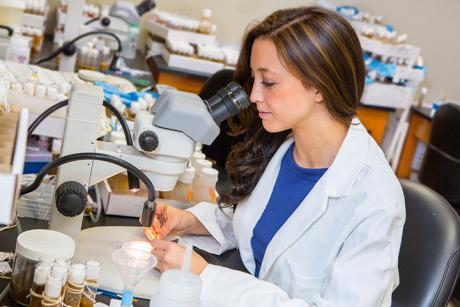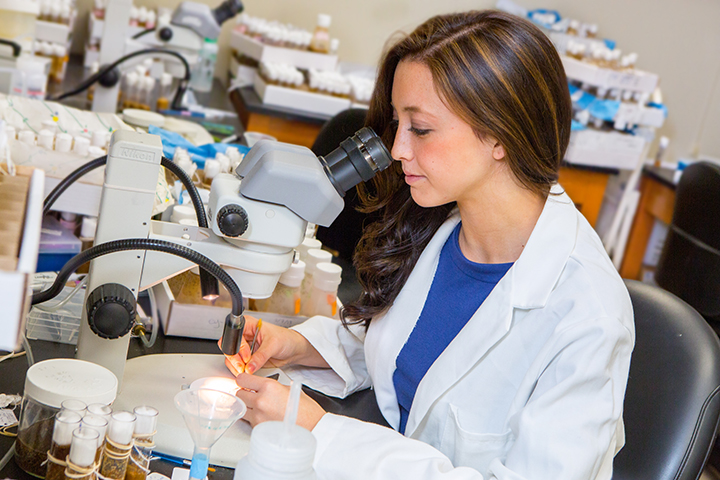Award validates clinician-researcher hopeful


As part of a military family, undergraduate Barbara Dietrick lived in five states before coming to FSU. Some people might find all that moving to be disruptive, but Dietrick says it gave her a rich supply of experience and initiative. If something interests her, she pursues it.
So even though she’s taking four classes as a biology major, studying for the MCAT and dancing with the FSU Golden Girls, Dietrick somehow also finds the time to pursue scientific research in the lab of Biomedical Sciences Associate Professor Tim Megraw. And she’s doing so well that she received a 2015 Undergraduate Research and Creative Activity Award (URCAA).
More than 70 students applied for the FSU award, and only 12 made the cut. The URCAA will provide her with $4,000 to continue her research over the summer by covering living expenses and a conference she’ll attend in Colorado with the Megraw lab.
Not bad for someone who, not long ago, enjoyed science but didn’t know the first thing about research.
“What I find most remarkable about Barbara is how bright and mature she is,” Megraw said. “She is a junior undergraduate but functions close to the level of a graduate student and would certainly be capable of jumping right into a graduate program now.”
Dietrick, 21, discovered research through Florida State’s Undergraduate Research Opportunity Program. Currently she operates her own experiment in the Megraw lab, where they use the fly as a model to study genetic mutations.
“Dr. Megraw gave me my own project my sophomore year working with one of the mutants he found,” said Dietrick, whose lab responsibilities will culminate in an honors thesis project. “Microcephaly is what I’m concentrating on. It’s a brain disease that causes reduced size of the cerebral cortex in humans.”
Her broad spectrum of interests often piques others’ curiosity.
“People are very surprised when they find out I am involved in both research and Golden Girls,” Dietrick said. “There is such a stereotype that Golden Girls are just dancers that have to look pretty on the sidelines of games, but we are held to high academic standards.
“I’m looking at applying to M.D.-Ph.D. programs, because I love research so much. I just can’t imagine doing one without the other.”
Her vision for using those degrees is equally ambitious.
“Right now, what I’m looking into is gene therapy and doing the clinical component, but also research,” Dietrick said. “It’s such a new field. It would take a lot more research, and then human trials. I’m looking to try to do both.”
With the URCAA, she’s on her way.
“It’s very validating and humbling to win because so many people applied for the award,” said Dietrick. “It was exciting to know that other people cared about my project.”

